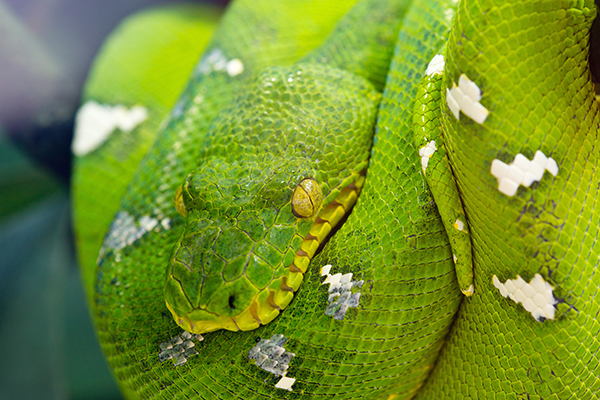Winter is coming and that means many animals are preparing for the cold months ahead. But what about our cold-blooded friends? Do reptiles hibernate?
The short answer is yes, however it goes by a different name: brumation. This is an important topic for any reptile hobbyist to familiarize themselves with, especially if they own a brumating reptile. Brumation is a natural process and nothing to be concerned about, but knowing how to recognize the behavior could make the difference between a pet becoming sick or staying healthy during the winter.
What is the difference between hibernation and brumation?
Although similar in ideas, there are several key differences between the processes of hibernation and brumation. Some of the common similarities between them is that an animal experiencing either will tend to eat a lot more in order to “bulk up” on their fat reserves and lipids before entering dormancy, and that shortening day length and temperature play a key role (both are present in the onset of winter).
Some big differences between brumation and hibernation are that reptiles do not stop drinking water (although they do stop eating). In addition to building up fat reserves, reptiles also increase their glycogen (sugar) storage to assist in future reproduction. Another difference is that reptiles do not actually sleep during this time. A hibernating animal would be sleeping for the duration of their dormancy, but a brumating reptile might awake from their sleep to hydrate themselves or to sun bathe on days that are warm. One final difference is that reptiles do not require as much oxygen during brumation due to the amount of glycogen in their blood; this is why some reptiles, like certain turtles, may bury themselves or submerge themselves under water during this time of rest.
What information should reptile owners know?
Sometimes inexperienced reptile owners may not be familiar with what brumation is, and if their pet suddenly becomes dormant this may cause some concern for their reptile’s health and safety. It is always best to consult a professional when questioning if your pet is going into brumation, and if you do have concerns it is always better to be safe and have a veterinarian confirm that there is no other underlying cause for your reptile’s behavior.
Once determining that your pet is preparing for brumation, it is very important to remember a few things. Your enclosure’s temperature will generally be lower than normal. This means your reptile should be offered food less often during brumation; they will not be able to properly digest the amount of food you would normally give them. Doing your homework before getting a reptile as a pet will help you to take care of them without risking anything serious happening to your animal.
Reptile Shows of New England hosts educational discussions on a variety of reptiles, including Boas, Iguanas, Tegus, and even Burmese pythons. If you are interested in learning more about these reptiles and getting up close and personal, book a show today!



